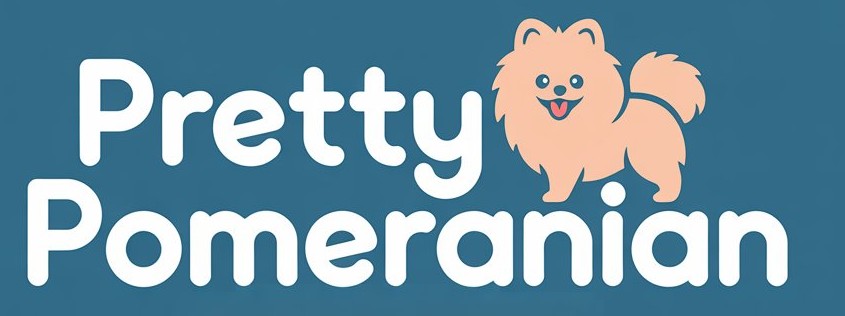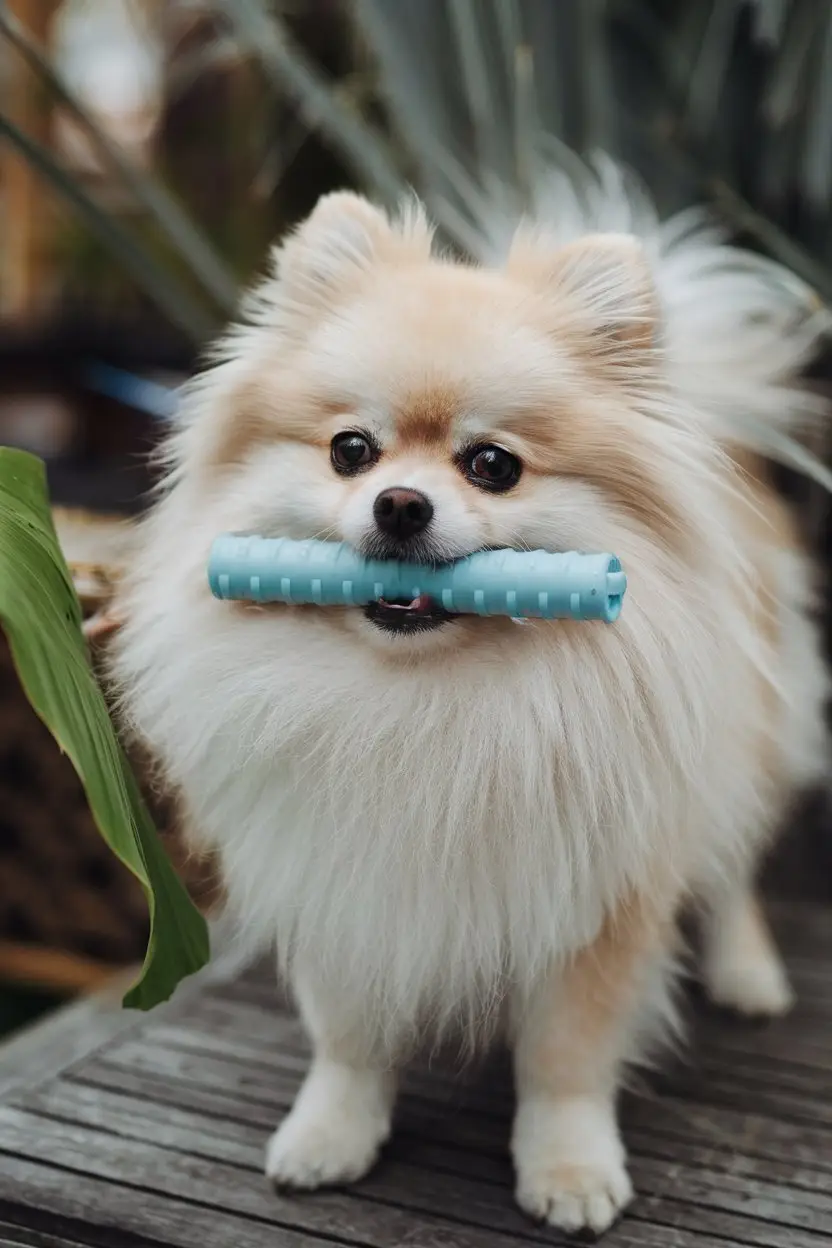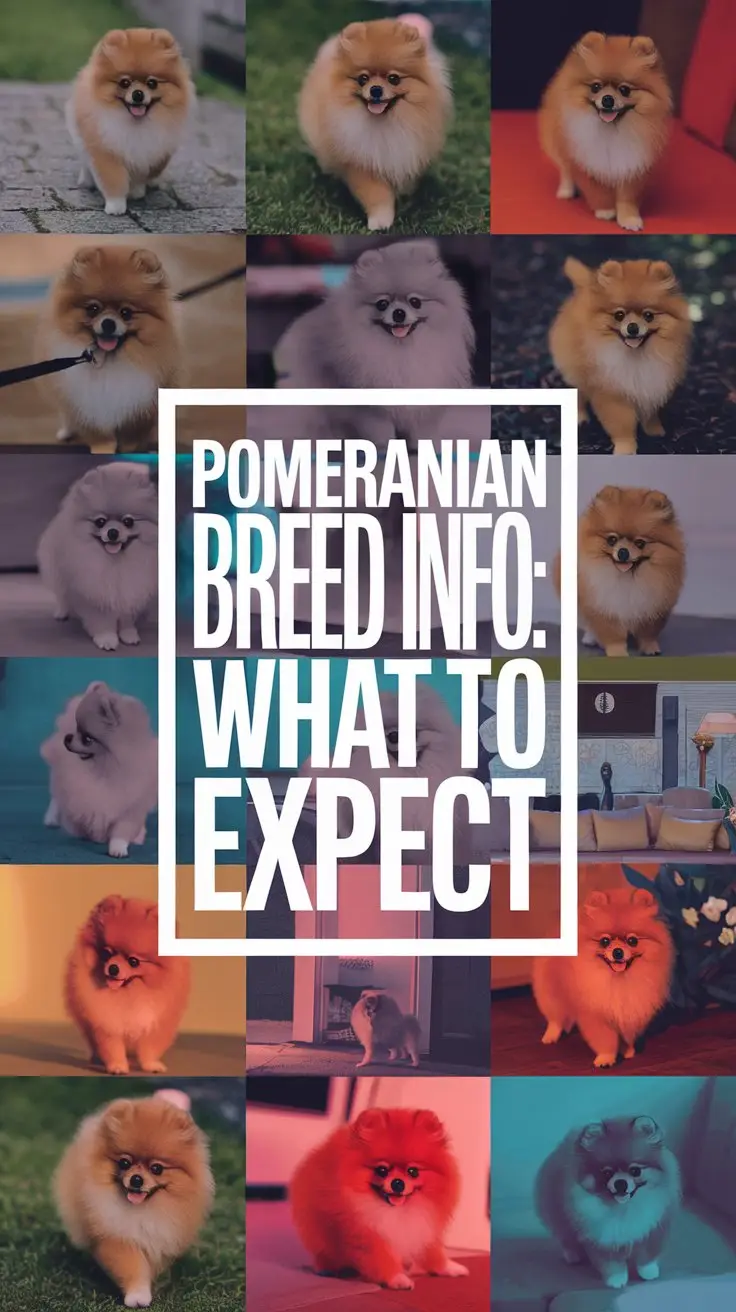Your Pom starts getting older around 7-9 years – you’ll spot the signs like gray fur popping up, more snoozing during the day, and them taking things a bit slower. Time to switch up their care routine! Give them food that’s just right for seniors (about 18-20% protein and 10-12% fat) and keep exercise fun but easy – let them set the pace.
👴 The golden years aren’t golden for your wallet. Trust me on this one
👉 Find out which pet insurance plans still accept senior Poms and cover aging issues
Make sure to see the vet twice a year and check on your buddy daily at home. If they’re having trouble getting around, grab some comfy orthopedic beds to help them rest better. When you stay on top of their food, exercise, and health needs, your older Pom can have a great time in their senior years.
We’ve got lots of tips and tricks to help your furry friend stay happy and healthy as they age.
Understanding Your Pomeranian’s Life Stages
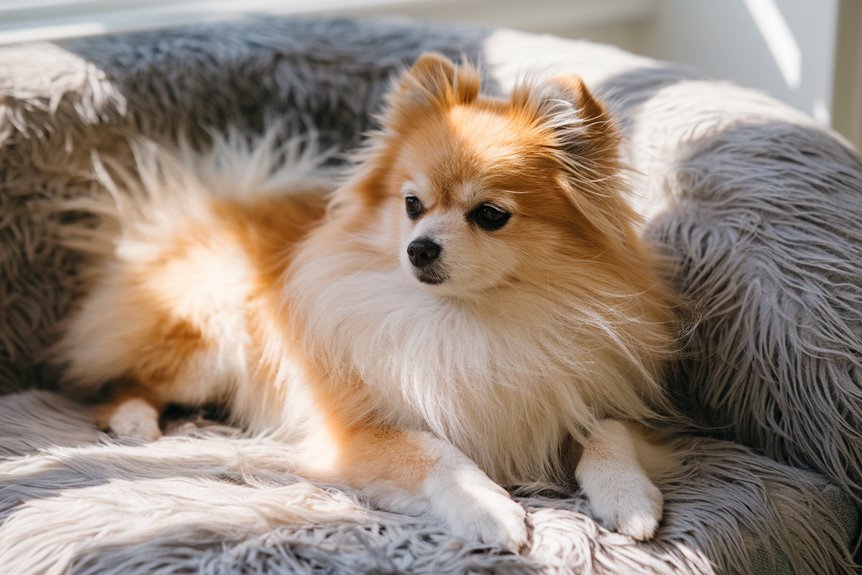
Your Pom’s going through four main life stages, and each one needs its own special TLC!
When they’re tiny pups (up to 10 months), they’re growing super fast – their coat starts changing, and those baby teeth start falling out. They start with a smooth single-layer coat at birth. Getting their food just right during this time really matters for them to grow up strong and healthy.
Around their first birthday, you’ll start seeing that fluffy double coat coming in, and they’ll be bouncing off the walls with energy! Most Poms reach their full adult size around this age, which helps prevent accidental injuries.
Between ages 2 and 8, it’s all about keeping up their regular schedule and making sure they stay healthy.
Once your furry friend hits 8, they’re officially a senior pup, and you might need to switch up a few things to keep them comfy as they get older.
Knowing what to expect during each stage makes it way easier to give your little buddy exactly what they need!
Signs of Aging to Watch
Getting older is totally normal for your furry friend, and you’ll notice little changes happening along the way.
Look out for gray hair popping up around their face and eyes, and they mightn’t have as much pep in their step anymore. Your buddy will probably start snoozing more and mightn’t be as excited about playing as they used to be.
Your Pom might seem a bit achy when they get up, especially when it’s chilly outside or after they’ve been lounging around.
They might also take longer to respond when you call them or get a bit more worried when you’re not around.
Keep an eye on how much they’re eating and if they’re gaining or losing weight – these could mean something’s up.
It’s super important to keep up with those vet visits now so you can catch any health stuff early on.
If your senior Pom develops a honking-like cough, they may be experiencing collapsed trachea symptoms that require immediate veterinary attention.
Extending Your Pom’s Golden Years
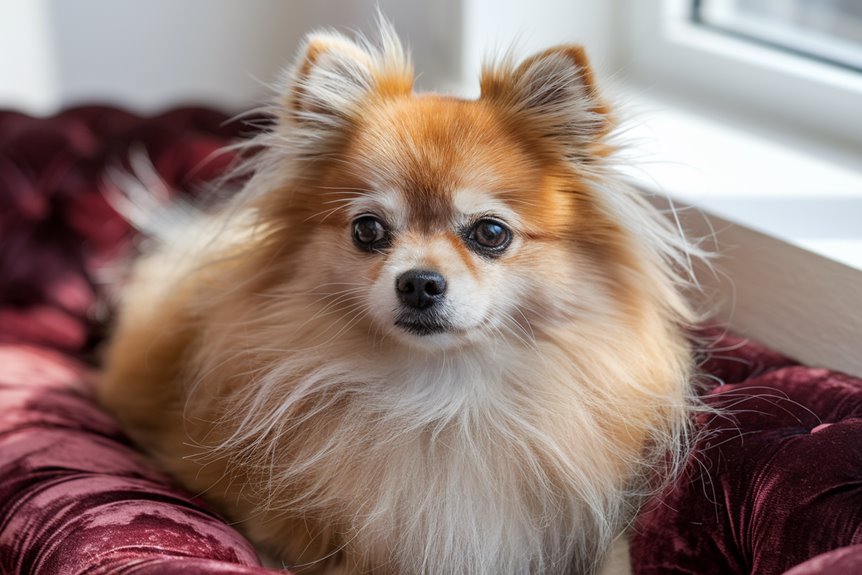
Looking after your aging Pom doesn’t have to be complicated! It’s all about giving them the right mix of good food, fun activities, and regular health checks to keep them going strong.
As your furry friend gets older, switch up their meals to include more fiber-rich foods and important nutrients, but watch those portion sizes – nobody wants a chubby Pom!
Keep them moving with activities that match their energy level – think nice, easy walks and fun brain games that won’t tire them out too much.
Don’t skip those vet visits – they’re super important now more than ever! Your vet can spot any age-related problems and fix them before they get worse.
Make sure to keep those teeth clean and get regular health screenings. When you help your Pom stay fit, keep their mind active, and stay on top of their health needs, you’re giving your little buddy the best shot at enjoying their senior years to the fullest!
While senior Poms may need fewer vaccines, maintaining core vaccination boosters remains essential for their long-term health and immunity.
Senior Pomeranian Health Care
Looking after your older Pom is all about keeping them healthy and happy! Just like any Pom parent, you’ll want to feed them right – aim for food with 18-20% protein and 10-12% fat.
And don’t forget those teeth! Regular brushing and vet check-ups keep that smile bright.
Your senior fluffball needs:
- Vet visits twice a year for thorough old-age check-ups
- Regular home check-ups (give them a good pat-down to feel for anything unusual)
- Special diet plans that work for their age and any health stuff they’re dealing with
Keep an eye on their weight and take it easy with exercise as they get older.
Get them a comfy orthopedic bed to help their joints, and stick to regular grooming to avoid any skin problems.
Remember – catching health issues early through check-ups can help your furry bestie live longer and feel better!
With proper care and attention, your Pomeranian could enjoy a lifespan of 16 years or even longer.
Age-Related Changes and Adaptations
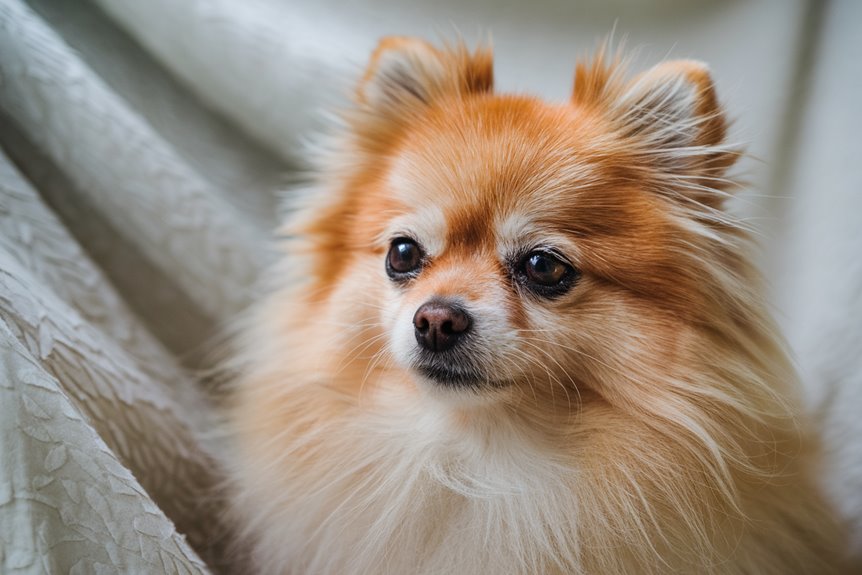
Your Pom’s gonna change quite a bit as they get older – it’s just part of the journey together!
You’ll start seeing little differences when they hit around 7-9 years old, like taking more naps and moving a bit slower than before.
Once they’re past 10, things become more obvious – their fur might get a bit gray, and they won’t have as much zip as they used to.
Looking after an older Pom means switching things up a bit.
You’ll want to swap their food for senior-friendly options and maybe throw in some supplements to keep those joints happy.
Don’t skip those vet visits – catching stuff early makes a big difference!
Keep the exercise going, but take it easier and match what they can handle.
The best thing you can do is give them loads of gentle cuddles and attention – they love that stuff even more in their older years.
Consider adding low-calorie fruits and vegetables to their diet to help maintain a healthy weight without excess calories.
Frequently Asked Questions
Can Senior Pomeranians Safely Play With Young Puppies?
Let your older Pom hang out with pups, but keep a close eye on them! Just make sure play sessions stay brief and watch how they get along. Those bouncy little puppies can be a bit much for senior dogs, so jump in if your older buddy seems tired or stressed. It’s all about finding that sweet spot where everyone has fun but your senior pal doesn’t get worn out!
Do Pomeranians Become More Vocal or Bark Less With Age?
Your Pom’s barking will change as they get older. Most chill out and don’t bark as much once they’re grown up and trained properly, but some older pups might get extra chatty if they’re feeling nervous or not feeling their best.
Should I Get Another Dog to Keep My Aging Pomeranian Company?
A new buddy can be just what your older Pom needs to feel young again! But before you run out to grab another pup, take a minute to think about how your senior friend’s health and personality would handle a new addition to the family. It’s kinda like matching up roommates – you want to make sure they’ll get along and be a good fit for each other.
When Should I Switch My Senior Pomeranian to Heated Bedding?
Just wait for your older Pom to start acting stiff or showing signs they’re not as comfy as before, and that’s when you’ll know it’s time for heated bedding. It’s super sweet to give your furry friend some extra warmth, especially when the temperature drops. Making your aging buddy cozy is what being a good pet parent is all about!
Can Senior Pomeranians Still Participate in Dog Shows?
Sure thing – your older Pom can totally join dog shows! Age doesn’t stop them from competing, and lots of senior pups do great in the ring. Just check that they’re feeling good and keep their fur looking nice for shows – other dog handlers love seeing experienced pups strut their stuff!
